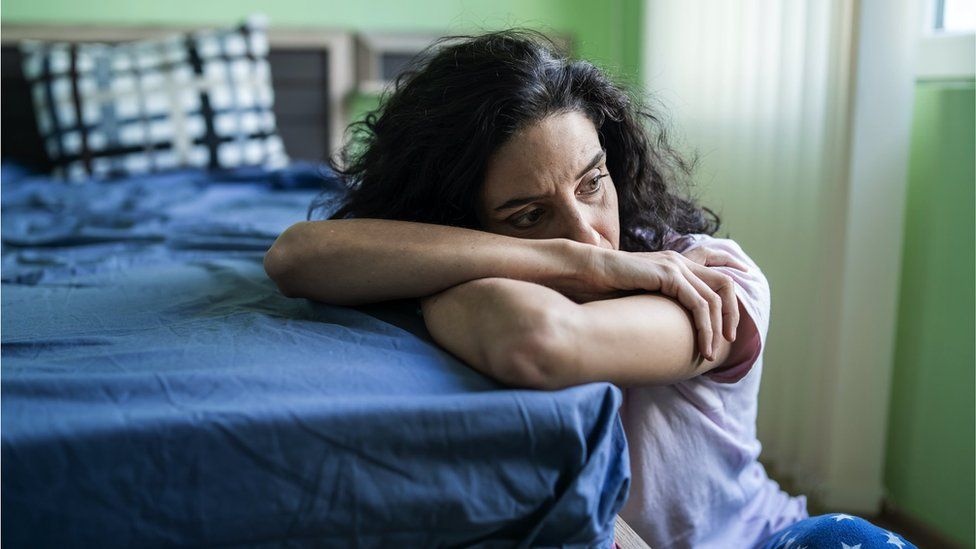
By Smitha Mundasad & Tulip Mazumdar
Health reporters
Women who lose babies during pregnancy have been promised improved care, including better ways for remains to be collected and stored with dignity.
The government will also introduce a voluntary certificate for parents who lose their baby before 24 weeks.
The commitments come in response to an independent review of care in England.
As part of new measures focusing on women’s health, the NHS website will also be updated to include more content on hormone replacement therapy and to allow people to search for the local availability of in vitro fertilisation treatment (IVF).
Officials acknowledged the work of BBC presenter Naga Munchetty and patient groups to raise awareness of the painful womb condition adenomyosis and said they would provide more information online.
The separate independent Pregnancy Loss Review made 73 recommendations for improving care for people who experience baby loss before 24 weeks.
There are around 500 miscarriages a day in the UK – defined as a loss of a pregnancy before 24 weeks. For many women this happens at home, with little support or pain relief.
Jessica Wharton, 28, an English tutor from Wythenshawe, had two early pregnancy losses last year.
She says the lack of acknowledgement of her losses left her feeling heartbroken.
She said: “Apart from us as a couple and our friends and family, no-one really acknowledged our loss.
“When I asked the hospital for something to acknowledge them they said they couldn’t do that.
“We felt the baby was part of us and we had tried for a long time. This was still our child.”
She said her experiences would have been improved by staff being more empathetic, more available to listen to her and to tell her what to expect.
“A year later it is still very raw. We are trying to take each day as it comes and hold them in our hearts.”
While babies born after 24 weeks gestation are official recorded as stillbirths, there is currently no formal way to mark losses before this time.
The government says a voluntary certificate would be made available from October, and while not a legal document, would help “provide comfort and help parents validate their loss”.
- Beginning to explore how women who have experienced baby loss can get 24/7 access to care and how those experiencing multiple miscarriages receive treatment and testing
- Developing and creating “a bespoke holder” to allow remains to be collected and stored with due dignity
Natasha Necati from Essex suffered eight miscarriages
The independent review said early loss was commonly viewed as a “clinical episode” with some healthcare professionals not taking individuals’ emotional and physical care seriously.
Co-lead of the review, and baby loss charity founder, Zoe Clark-Coates, said: “I want to see people stopping having to hit Google to find out ‘what care should I be receiving, where should I be going for support’ – this support should be easily available to every single person.”
Other recommendations in the review include:
- Education in schools on the symptoms of all types of baby loss and where to seek help
- Routine offers of mental health support for women and partners
- Support to understand why the loss occurred with appointments and advice for future pregnancies
- Private spaces in hospitals for patients experiencing baby loss
- Further research on the increased risk for women from Black, Asian and ethnic minority backgrounds and people from more deprived areas
Maria Caulfield, minister for women’s health, said: “We will keep working and investing so girls and women across the country can benefit from the world-class healthcare they deserve.”
Related Topics
Related Internet Links
The BBC is not responsible for the content of external sites.








